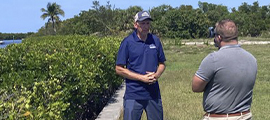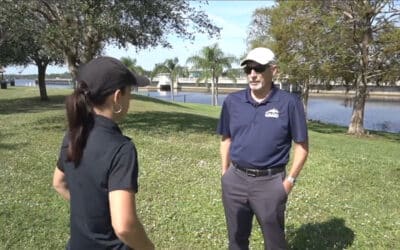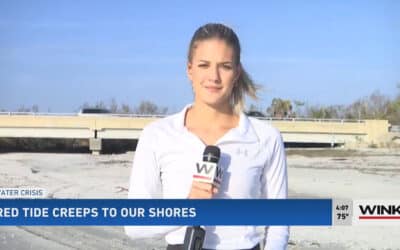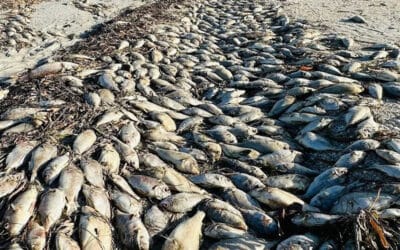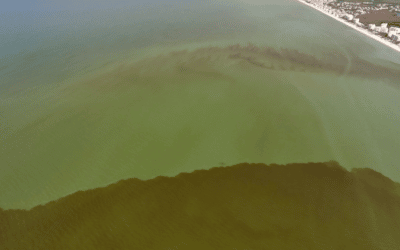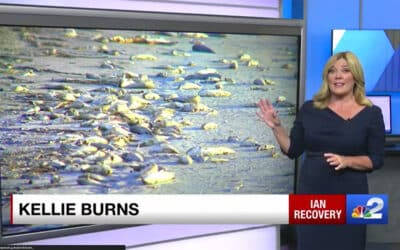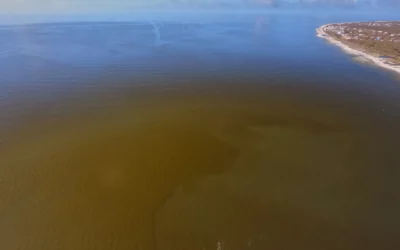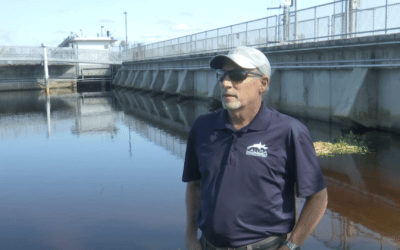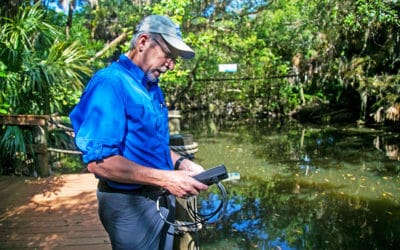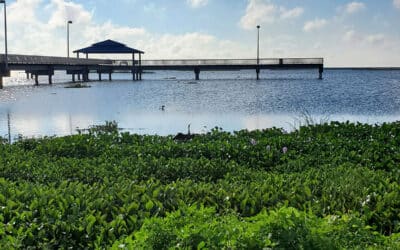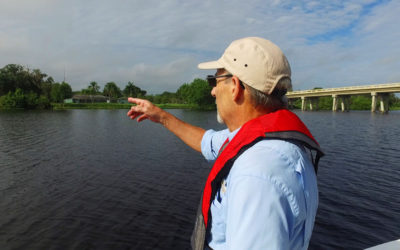Calusa Waterkeeper
In the News
Giving Thanks to our Generous Donors & Followers
We thank You for being a part of the Calusa Waterkeeper family, following our accomplishments and investing in our work. Your generous giving allows us to continue our prioritized water and air testing, especially now as dangerous Red Tide appears off the coast in many areas of SW Florida.
Our Thanks To You
At this time of year, when we reflect on our many blessings, we can’t help but think of you, our loyal supporters who have given so much to Calusa Waterkeeper.
Red Tide Continues to Make its way through Southwest Florida Waterways
Red tide continues to make its way across southwest Florida waterways. Some areas are not feeling the full effect, though many beaches are seeing some traces of the bloom. “It’s pretty dynamic where it’s at,” said John Cassani with Calusa Waterkeeper.
Red Tide Blooms Appearing Along the Southwest Florida Coast
Red tide is appearing up and down the Southwest Florida coastline, so Lee and Collier counties have both issued health alerts for the blooms. They say to stay away from the water, especially if you have breathing issues, and don’t try to remove the dead fish yourself.
Red Tide Update: State Report Shows Toxic Algae Levels from Sarasota South to Marco Island
Scientists are saying a red tide bloom that’s lingered along the coast for a few weeks is now being fed by nutrients running off the landscape in the wake of Hurricane Ian. Red tide (Karenia brevis) is a naturally occurring organism in the Gulf of Mexico that sometimes blooms to toxic levels.
Researching the Effects of a Red Tide Bloom
You don’t have to be in the water or right by a bloom to be affected by it. Research shows you can be miles away and airborne toxins can be present. Manny Aparicio, Calusa Waterkeeper board member explains the effects of a red tide bloom.
Experts Concerned about Long-Term Impacts from Red Tide Algal Blooms in SWFL
Since Hurricane Ian, red tide has been blooming across Southwest Florida. Most beaches in SWFL have been closed due to potential debris threats in the water, but The Calusa Waterkeeper reported that blooms are now present in both Naples and in Sanibel.
Red Tide Bloom Moves into Lee County Waters as Fish Kills Reported in Pine Island Sound
A red tide bloom that’s been lingering off the coast of Sarasota and Charlotte counties has made it to Lee County waters, where fish kills are being reported at some local beaches. Red tide (Karenia brevis) is a naturally occurring organism that can become deadly when conditions are right.
Red Tide Getting Worse in Southwest Florida
Red tide lines Southwest Florida’s coast from south Lee County into Sarasota. When Calusa Waterkeeper John Cassani sees this, it reminds him of the last time a hurricane came through Southwest Florida. After Irma, a red tide bloom went up and down the coast for about two years.
John Cassani to Retire as Calusa Waterkeeper in 2023
It is with heavy, but grateful hearts that we announce the retirement of John Cassani as the Calusa Waterkeeper, effective January 1, 2023. John’s service to the Calusa Waterkeeper organization and the people of Southwest Florida has been immense and cannot be overstated.
Lake Okeechobee leveling off after rains from Hurricane Ian but there’s still a threat
The Lake Okeechobee system is more likely to see a blue-green algal bloom next spring as a result of Hurricane Ian. Lt. Col. Todd Polk with the U.S. Army Corps of Engineers said Ian whipped up waters and stirred nutrients within the system, and that those nutrients could fuel a bloom.
John Cassani, Calusa Waterkeeper Accomplishments
As we honor John's Cassani's retirement as Calusa Waterkeeper and his career of service, here are but some highlights of his immense commitment to our environment and community. John was a founding member of Caloosahatchee River Citizens Association (CRCA) in 1995....

















